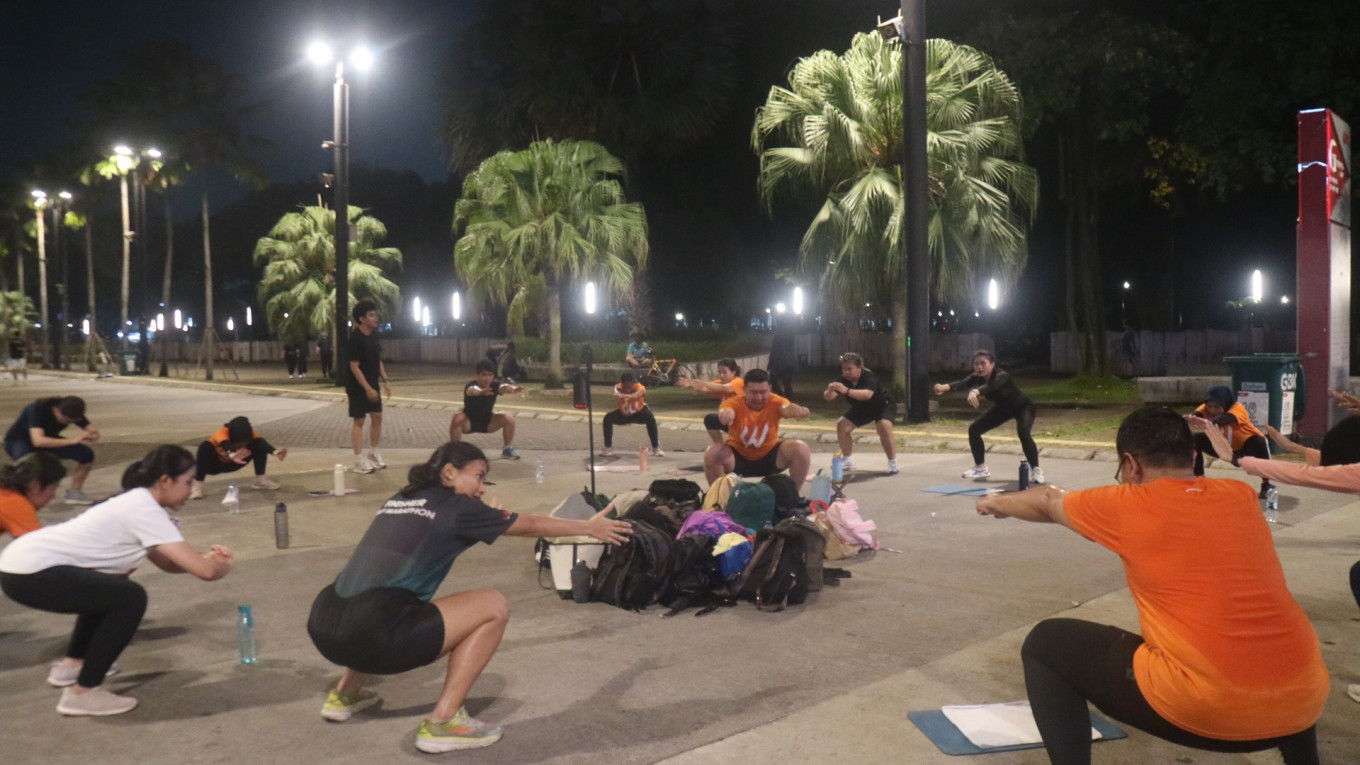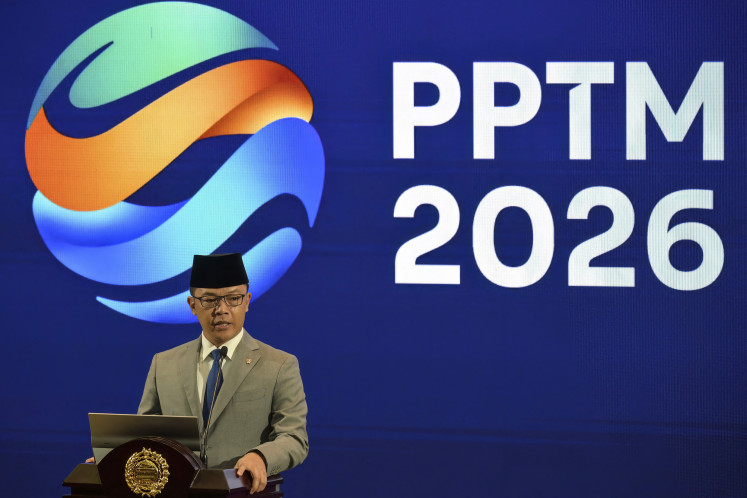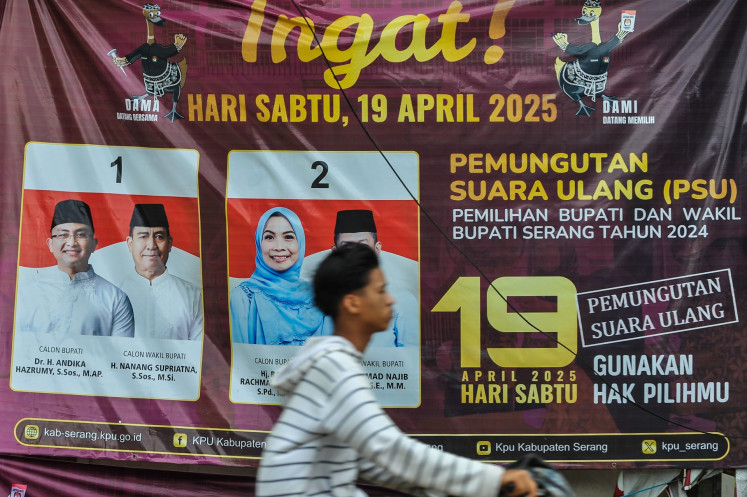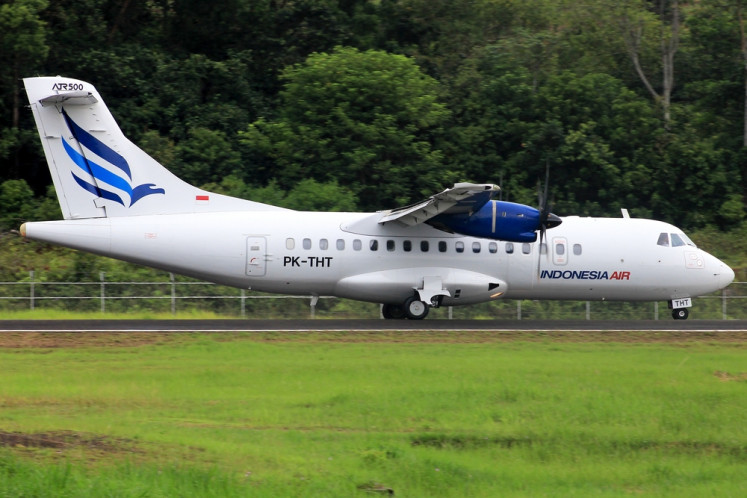Popular Reads
Top Results
Can't find what you're looking for?
View all search resultsPopular Reads
Top Results
Can't find what you're looking for?
View all search resultsNightlife's healthier makeover
The growing focus on healthier living is evident among Gen Z and millennials across Jakarta and the Asia-Pacific region, with more in this demographic choosing to spend their nights at gyms or stadiums rather than bars and amusement centers.
Change text size
Gift Premium Articles
to Anyone
S
prawling across 661.5 square kilometers and home to over 11 million people, Jakarta has long been known as a city that never sleeps. With its vibrant nightlife, glittering skyscrapers and seemingly endless entertainment options, the metropolis pulses with energy long after the sun goes down.
But while the city's nightlife remains as lively as ever, a quiet shift is taking place. Observant night owls may notice that young Jakartans are increasingly trading nightclubs and bars for stadiums, gyms and sports centers. Some simply choose to walk or jog along the city's imperfect sidewalks late into the night.
This shift mirrors a broader global trend, particularly among Gen Z, who are placing a greater emphasis on physical and mental well-being. More young adults are ditching pubs and clubs for gyms and leaving alcohol for matcha and wellness shots. In the United Kingdom, a record 11.5 million people now hold gym memberships, a 1.6 million increase since 2022, with younger adults driving this fitness boom. In neighboring Australia, a recent health survey revealed that Gen Z spends more on fitness than any other demographic.
A 2023 study by the American consulting firm McKinsey, which surveyed over 5,000 consumers across China, the UK and the United States, found that Gen Z and millennials are now spending more on wellness products and services than older generations. Meanwhile, alcohol consumption in the US has been steadily declining for several years, with young adults driving the shift. In a recent survey of 1,000 Gen Z individuals, 21 percent reported they do not drink at all, while 39 percent said they consume alcohol only occasionally. The most common reasons cited were concerns about physical and mental health, as well as a general lack of interest.
This growing focus on healthier living is also evident across the Asia-Pacific region. According to the 2023 Asia Pacific Health Priority Survey by Herbalife, a significant 77 percent of consumers in the region became more health-conscious as a result of the COVID-19 pandemic. The shift was especially pronounced in Thailand (93 percent), Indonesia (92 percent), the Philippines (87 percent) and Vietnam (86 percent). The top health goals cited were improving overall health, getting better sleep, boosting immunity, improving eating habits and supporting mental health.
This shift is encouraging for Indonesia, especially as the government intensifies its efforts to prioritize disease prevention and health promotion to ease the burden of non-communicable diseases on the national health insurance system (JKN). The Jakarta administration appears to be supporting this growing health-conscious lifestyle by keeping several parks open 24 hours, extending Ragunan Zoo’s opening hours into the night, and planning a "car-free night" initiative along major thoroughfares, though the latter has yet to materialize.
These efforts are aimed at providing more accessible green spaces for busy Jakartans to exercise after dark or simply enjoy the city in a more mindful way, outside the confines of loud nightclubs and bars. While these measures are commendable, one major issue seems to be overlooked: Jakarta’s persistent and severe air pollution.
The Meteorology, Climatology and Geophysics Agency (BMKG) has long warned that pollution levels in Jakarta tend to spike at night and in the early morning due to a temperature inversion layer. This atmospheric phenomenon traps pollutants close to the ground, preventing their dispersion and leading to poorer air quality precisely when more residents are choosing to exercise outdoors.
Considering that air pollution is responsible for an estimated 2,500 premature deaths annually in Greater Jakarta, as well as contributing to immune, respiratory and cardiovascular diseases, the city must ensure that residents’ efforts to lead healthier lives do not inadvertently harm their health.
Beyond addressing air pollution, Jakarta must expand and revitalize its sidewalks while ensuring these spaces are not encroached upon by illegal parking or street vendors. These efforts are essential to support, and even encourage, the younger generation’s commitment to healthier lifestyles. After all, a healthy population is the foundation of a productive society.
If Indonesia is serious about achieving its 2045 Golden Vision, it must prioritize not just the size of its demographic bonus, but the well-being and quality of life of its people.











